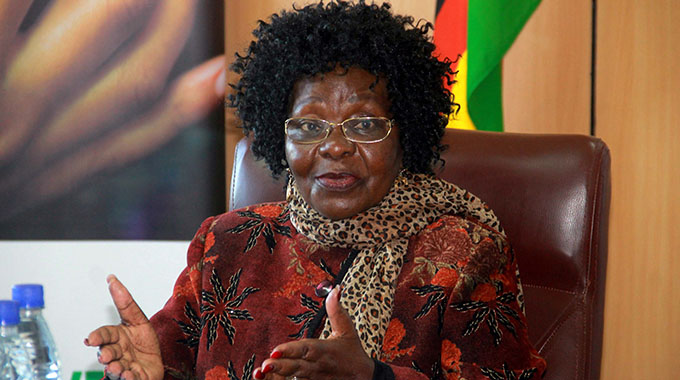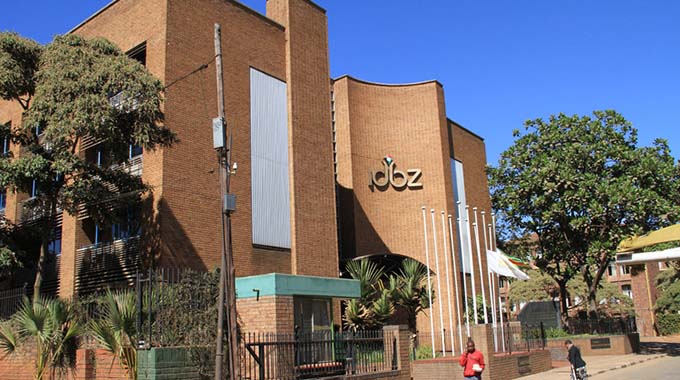SMEs: The task of formalising the informal

Keith Guzah Correspondent
Cde Sithembiso Nyoni was last week retained in her ministerial position with extra responsibilities in the reconfigured Ministry of Women Affairs, Community, Small and Medium Enterprise Development.
There is something salutary in President Mnangagwa retaining Minister Nyoni in the role – just like some other retainees – as the new Government works to blend the new and old.
Institutional memory is key, and this is particularly true of Minister Nyoni and her ministry, which as shall be discussed in this piece, is key in shaping Zimbabwe’s forward momentum.
Professor Anne Tiernan, in a 2008 article argued that, “It is utterly necessary for a government to draw on institutional memory to govern in a stable and rational way”.
Institutional memory is defined as the collective knowledge and learned experiences of a group. In politics, it is the “distinctive familiarity of the past” possessed by key ministers and public servants that can inform current policy.
In a story for The Machinery of Government, Sarah Binney, an Australian political scientist, bluntly summed it up as “how things were done before”. She went on to say: “It is a certain type of wisdom – of understanding what did and did not work before – that allows for educated decision-making and reform.”
On the basis of the above narrative and the centrality of the ministry responsible for small to medium enterprise development to the President’s goals, it was prudent and commendable that President Mnangagwa appoints someone who has been at the helm of a sector that was arguably running a US$7 billion parallel economy since the imposition of sanctions on Zimbabwe.
There are, however, areas that need critical interrogation and clarity on the mandate of this ministry. In the last dispensation, when focus was more on indigenisation and economic empowerment, confusion arose among the many empowerment associations and Government as to what and who the ministry actually represented.
The single most important question is: What is an SME? We have heard over time Government ministers and industry leaders interchangeably using “informal sector” and small and medium enterprise (SME). Thus colloquially, informal traders are known as SMEs in Zimbabwe even though they do not contribute to the fiscus by way of regulated taxes e.t.c.
In the absence of a clear and definitive answer, every informal trader, registered sole trader, a vendor, cross border trader, small registered enterprise, medium registered enterprise e.t.c will all be heaped under the one banner of the SMEs.
According to the Association of Small and Medium Enterprises, their definition of a small enterprise is that of a company with a turnover of less than $240 000 or assets less than $100 000 and a medium enterprise must have a turnover and assets above the thresholds for small enterprises, but less than $1 million.
However, for purposes of this discourse, SMEs shall refer to informal traders across the entire economic sectors of our country.
A 2013 FinScope survey indicated that 2,8 million micro, small and medium businesses – 85 percent of which are unregistered – created 5,7 million informal jobs. These businesses generated an estimated turnover of $7,4 billion according to the survey. In 2018, it is any economist’s guess as to where we stand.
The ministry, with the participation of other stakeholders, must craft a blueprint that will tap into the informal sector, incentivise them and assist in mainstreaming them into the formal economy, support them through capacity building and training e.t.c.
Once that is done, we can now speak of small and medium enterprise development. The country’s extensive informal sector could help boost Government revenue if incentives are created and offered to regularise their operations.
Formalising the informal
A key challenge and vital cog in the development of the SMEs is the formalisation of the informal sector.
Formalisation is loosely defined as having businesses registered with any Government agency and a process, whereby workers are organised into worker associations and/or trade unions. It goes beyond the mainstreaming of economic activities in the informal economy into the formal economy, thus it takes into account the reduction of decent work deficits.
Experts say formalisation is an enabler for those who would like to grow beyond their survivalist state as it will also significantly improve revenue inflows through taxation on employees’ salaries, import duty, property fees and other forms of taxes on the sector.
Four years ago, the then Minister of Finance and Economic Development, Patrick Chinamasa, conceded before Parliament that “our economy is now informal, that is the reality of our economy and it is a reality we must recognise and take measures on how to tap into this sector”.
But how can this be done?
Apart from registration and taxation of the sector, there is also need to establish codes of conduct for the employment of workers in the informal economy; improve labour inspection and new approaches to formalisation; ensure greater respect for the law, including extending labour protection to unprotected sectors, and establish a national board to set minimum wages for the informal economy similar to the National Wages and Salaries Board, which sets wages for domestic and unclassified workers.
On the other hand, participants in the sector need legal identity and rights as workers, entrepreneurs and asset-holders.
For them to gain official visibility in policy-making, their activities, enterprises and contributions should be measured and valued through provision of appropriate data.
Respected economic analyst Philip Chapfunga contends: “Formalisation of the informal sector would significantly improve revenue inflows through taxation on employees’ salaries, import duty, property fees and other forms of taxes on the sector. There is, however, need to create incentives for the informal sector to register”.
Informal traders are an apt medium that can fuel economic growth, prosperity and poverty reduction once all the fundamentals to regularise them are put in place. A carrot and stick approach can make a huge difference.
A transparent strategic partnership between the informal traders and the public sector is essential to ensure success.
If there are resources being availed to the informal traders, as was the case with the RBZ’s cross border facility, the ministry must invite independent business member organisations first to institute vetting, capacity building and training support for would-be beneficiaries before disbursement to ensure equitable distribution without an iota of corruption.
It has been noted that in most countries, the growth of SMEs is enabled through policymakers’ attention to support with working capital, easing access to finance, implementing a better regulation agenda and encouraging SME investment in new technologies and markets.
Studies in the United States revealed that small and medium enterprises play an outstanding role in driving gross domestic product (GDP) growth and sustaining employment. The International Labour Organisation (ILO) has by far the most comprehensive blueprint for informalising the informal and this has been tested in some regional countries.
In recognition of the significant contribution the informal economy makes to national GDP and the alternative economic opportunities and livelihoods it provides (with high levels of decent work deficits), South Africa, Malawi and Mozambique commit to promote sustainable enterprises which will contribute to poverty reduction and attainment of decent work.
All the three countries have adopted Recommendation 204: Transition from the Informal to the Formal Economy Recommendation (2015). Recommendation No 204 provides guidance to members to pursue a threefold objective:
facilitate the transition of workers and economic units from the informal to the formal economy, while respecting workers’ fundamental rights and ensuring opportunities for income security, livelihoods and entrepreneurship,
promote the creation, preservation and sustainability of enterprises and decent jobs in the formal economy and the coherence of macroeconomic, employment, social protection and other social policies; and
prevent the informalisation of formal economy jobs.
As part of their commitments, these countries have developed their respective Decent Work Country Programmes developed and signed by workers, employers and governments, according to ILO.
These insights indicate that Minister Nyoni will have a huge task at hand, which will be critical in the overall performance of the economy and changing livelihoods of Zimbabwean people.
There will be need for the ministry to work diligently and with stakeholders to achieve this.
Dr Keith N Guzah is the executive chairman of KRMS (Pvt) Ltd, founder president of the National Business Council of Zimbabwe, past president of the Affirmative Action Group, past chairman of the National Investment Trust (NIT) and an empowerment activist. He is currently studying for a Law degree with a regional university.









Comments